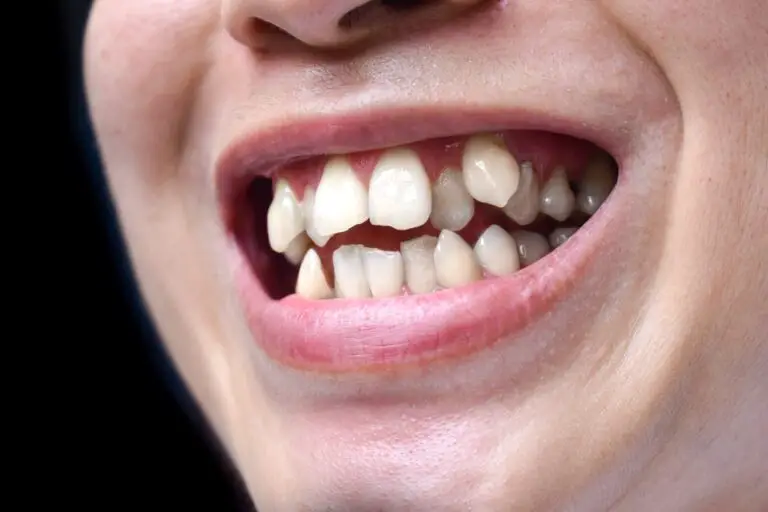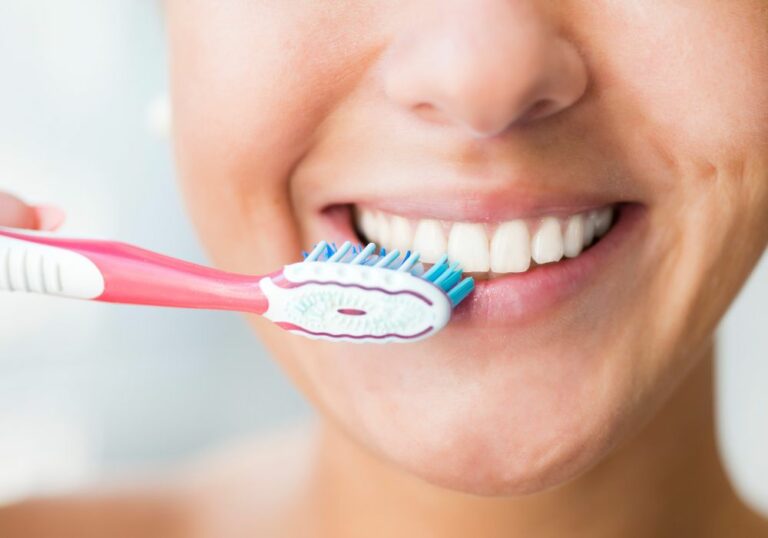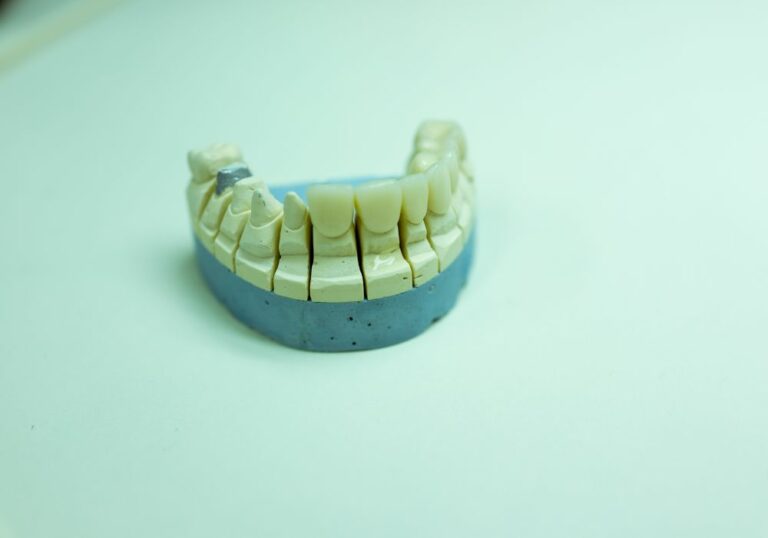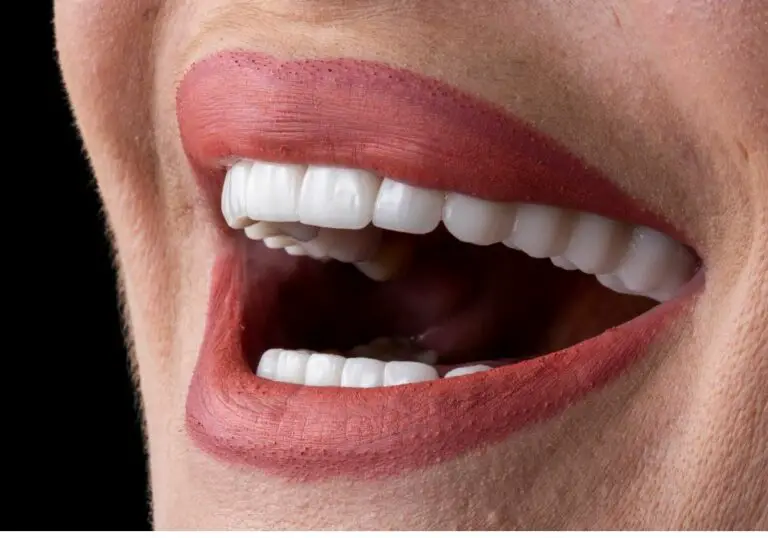If you’re experiencing discomfort or pain from your wisdom teeth, it’s not uncommon for your dentist to recommend having them removed. Wisdom teeth, also known as third molars, typically emerge between the ages of 17 and 25. However, they can cause a variety of dental problems, such as crowding, impaction, and infection, if they don’t have enough space to grow or are growing in the wrong direction.
One of the concerns people have about wisdom teeth removal is whether it can cause their other teeth to shift. While it’s true that your teeth can shift over time due to various factors, such as aging, gum disease, and tooth loss, wisdom teeth removal itself doesn’t cause your teeth to move. However, you may feel some soreness or discomfort in your other teeth after the procedure due to the interconnected nerves in your mouth.
It’s important to note that not everyone needs to have their wisdom teeth removed, and the decision should be made on a case-by-case basis. Your dentist or oral surgeon can evaluate your individual situation and recommend the best course of action. If you do need to have your wisdom teeth removed, it’s important to follow your dentist’s aftercare instructions to ensure proper healing and minimize any discomfort.
Understanding Wisdom Teeth
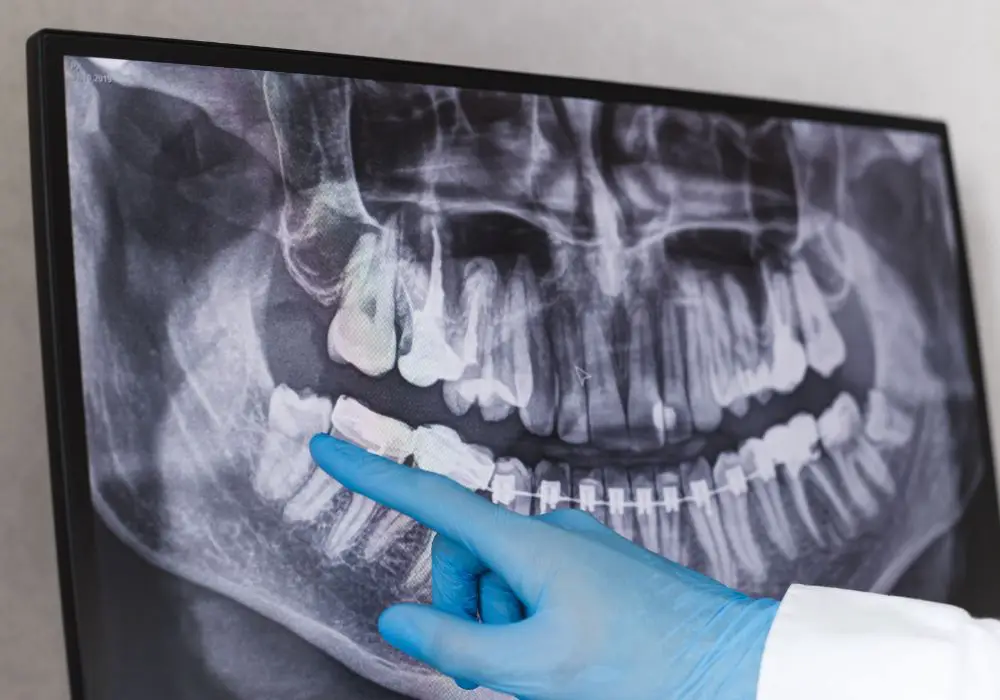
Wisdom teeth are the third molars that typically emerge between the ages of 17 and 25. They are located at the back of the mouth and are the last teeth to grow in. Most people have four wisdom teeth, but it is possible to have fewer or none at all.
Wisdom teeth can cause problems if they do not grow in properly. They can become impacted, meaning they do not have enough room to emerge, and can cause pain, infection, and damage to adjacent teeth. In some cases, wisdom teeth can grow in at an angle, pushing against other teeth and causing them to shift.
Wisdom teeth are not necessary for a healthy mouth. In fact, many dentists recommend having them removed before they cause problems. If you are experiencing pain or discomfort in the back of your mouth, it is important to see your dentist to determine if your wisdom teeth are the cause.
Here are some common signs that your wisdom teeth may be causing problems:
- Jaw pain or stiffness
- Swollen or bleeding gums
- Bad breath or an unpleasant taste in your mouth
- Difficulty opening your mouth
- Pain or discomfort when biting down or chewing
If you are experiencing any of these symptoms, it is important to see your dentist as soon as possible. They can examine your mouth and determine if your wisdom teeth need to be removed.
The Process of Wisdom Teeth Removal
If you are experiencing pain, infection, or other dental problems due to impacted wisdom teeth, your dentist may recommend removing them. Wisdom teeth removal is a common oral surgery procedure that involves removing one or more wisdom teeth located at the back corners of your mouth on the top and bottom.
Here is what you can expect during the process of wisdom teeth removal:
- Consultation: Before the procedure, your dentist or oral surgeon will examine your mouth and take X-rays to determine the position of your wisdom teeth and the best course of action. They will also discuss the procedure with you, including anesthesia options and any risks involved.
- Anesthesia: Depending on the complexity of the procedure and your level of anxiety, your dentist may recommend local anesthesia, nitrous oxide (laughing gas), oral sedation, or general anesthesia.
- Extraction: Once you are under anesthesia, your dentist will make an incision in your gum tissue and remove any bone blocking access to the wisdom tooth. They will then use forceps to grasp the tooth and gently rock it back and forth to loosen it from the socket. If the tooth is impacted, they may need to break it into pieces to remove it.
- Stitching: After the tooth is removed, your dentist will clean the socket and may place stitches to help the gum tissue heal.
- Recovery: You will be monitored for a short time after the procedure to ensure that you are recovering well from the anesthesia. You will also be given instructions on how to care for your mouth and manage any pain or swelling that may occur in the days following the procedure.
Overall, wisdom teeth removal is a safe and routine procedure that can help prevent future dental problems. If you have concerns about the process, talk to your dentist or oral surgeon to learn more about what to expect.
Effects on Other Teeth
When it comes to wisdom teeth removal, many people wonder if it can cause other teeth to move. Here we will explore the immediate and long-term effects of wisdom teeth removal on other teeth.
Immediate Effects
Immediately after the surgery, you may experience some discomfort and swelling in the affected area. However, the removal of wisdom teeth should not cause any immediate effects on other teeth. It is important to follow the post-operative instructions given by your dentist or oral surgeon to ensure proper healing and prevent any complications.
Long-Term Effects
Over time, the absence of wisdom teeth can potentially cause some changes in your bite and jaw alignment. However, these changes are usually minimal and should not cause any significant problems. In fact, in some cases, the removal of wisdom teeth can actually prevent other teeth from shifting out of place.
It is important to note that if your wisdom teeth were impacted and pushing against other teeth, their removal may actually prevent other teeth from shifting out of place. However, if your wisdom teeth were not causing any issues, their removal would not have any significant impact on the alignment of your other teeth.
In summary, wisdom teeth removal should not cause any immediate effects on other teeth, and any long-term effects are usually minimal. If you have concerns about the impact of wisdom teeth removal on your oral health, be sure to discuss them with your dentist or oral surgeon.
Factors Influencing Teeth Movement
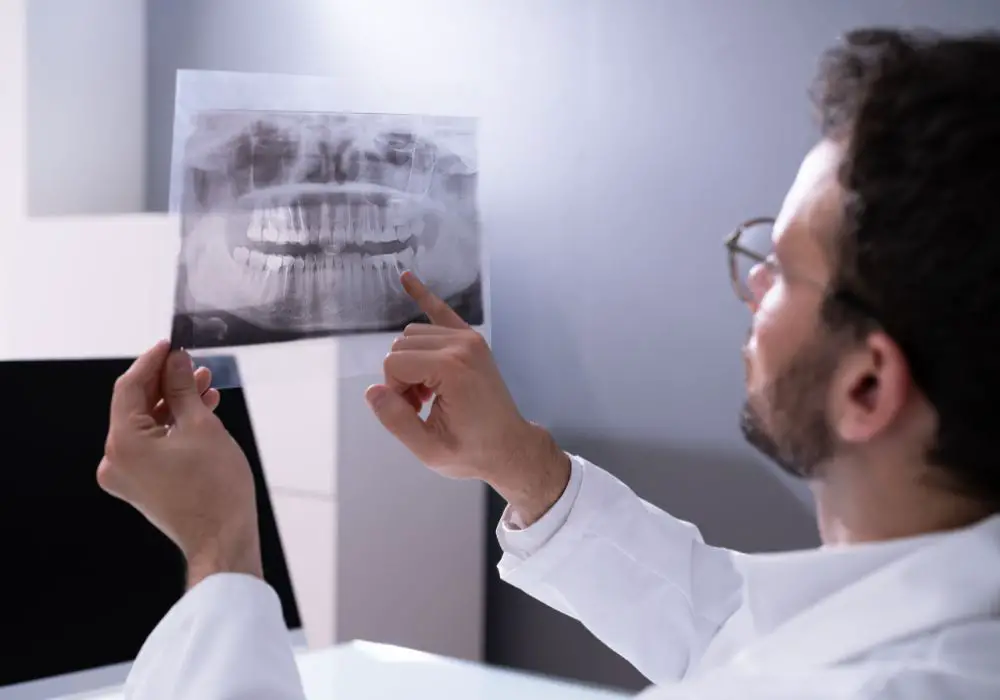
When it comes to teeth movement, there are several factors that can influence it. Here are two of the most important ones:
Age Factor
Your age can significantly affect how your teeth move after wisdom teeth removal. Younger people tend to have teeth that are more easily moved because their teeth and bones are still developing. As a result, if you have your wisdom teeth removed at a younger age, there is a higher chance that your other teeth may shift.
On the other hand, if you have your wisdom teeth removed at an older age, your teeth may be more stable, and there may be less chance of them shifting. However, this does not mean that older people are immune to teeth movement. Teeth can still shift at any age, but it may be less likely in older adults.
Oral Health Status
Your oral health status can also play a role in teeth movement. If you have underlying dental issues, such as gum disease or tooth decay, your teeth may be more prone to shifting. This is because these conditions can weaken your teeth and the surrounding bones, making them more susceptible to movement.
Additionally, if you have a missing tooth, your other teeth may shift to fill in the gap. This can lead to misalignment and crowding, which can cause further dental problems.
To prevent teeth movement, it is essential to maintain good oral hygiene and address any dental issues promptly. Regular dental check-ups can also help detect any potential problems early on, allowing for timely intervention and treatment.
In conclusion, several factors can influence teeth movement after wisdom teeth removal. While age and oral health status are two of the most critical factors, other factors such as genetics, diet, and lifestyle habits can also play a role. By taking care of your teeth and addressing any dental issues promptly, you can minimize the risk of teeth movement and maintain a healthy, beautiful smile.
Preventing Teeth Movement After Wisdom Teeth Removal
If you have had your wisdom teeth removed, you may be concerned about the possibility of other teeth shifting or moving as a result. Fortunately, there are steps you can take to prevent this from happening.
Use of Orthodontic Retainers
One effective way to prevent teeth movement after wisdom teeth removal is to use orthodontic retainers. These devices are custom-made to fit your mouth and can help keep your teeth in their proper positions. There are two main types of retainers: fixed and removable.
Fixed retainers are bonded to the back of your teeth and are not visible from the front. They are typically used for lower teeth and can stay in place for several years. Removable retainers are worn over your teeth and can be taken out for eating and cleaning. They are typically used for upper teeth and need to be worn consistently to be effective.
Regular Dental Checkups
Regular dental checkups are also important for preventing teeth movement after wisdom teeth removal. Your dentist can monitor your teeth and make sure they are staying in their proper positions. If any movement is detected, your dentist can recommend the appropriate treatment to correct it.
In addition to regular dental checkups, it is important to maintain good oral hygiene habits. Brush and floss your teeth regularly and avoid habits that can damage your teeth, such as chewing on hard objects or using your teeth to open packages.
By following these steps, you can help ensure that your teeth stay in their proper positions after wisdom teeth removal. If you have any concerns about teeth movement or other issues related to your oral health, be sure to talk to your dentist.
Myths and Misconceptions
When it comes to wisdom teeth removal, there are many myths and misconceptions out there that can cause confusion and anxiety. Here are some of the most common myths and the truth behind them:
Myth 1: Removing wisdom teeth will cause your other teeth to shift
This is a common misconception, but it’s not entirely true. While it’s possible for teeth to shift after wisdom teeth removal, it’s not a guarantee. Your teeth are held in place by a complex system of ligaments and bone, and removing your wisdom teeth won’t necessarily disrupt this system.
Myth 2: Everyone needs to have their wisdom teeth removed
Not everyone needs to have their wisdom teeth removed. In fact, some people never develop wisdom teeth at all. Others may have enough space in their mouths to accommodate their wisdom teeth without any problems. Your dentist or oral surgeon will evaluate your individual situation and recommend the best course of action.
Myth 3: Wisdom teeth removal is a painful and risky procedure
While any surgical procedure comes with some degree of risk, wisdom teeth removal is a common and routine procedure. Your dentist or oral surgeon will use anesthesia to ensure that you don’t feel any pain during the procedure. Afterward, you may experience some discomfort and swelling, but this can usually be managed with pain medication and ice packs.
Myth 4: You should always have all four wisdom teeth removed at once
While it’s true that many people have all four wisdom teeth removed at once, this isn’t always necessary. If your wisdom teeth are causing problems, your dentist or oral surgeon may recommend removing them in stages to minimize discomfort and allow for proper healing.
By understanding the truth behind these common myths, you can make informed decisions about your oral health and feel more confident about your wisdom teeth removal procedure.
Consulting a Dental Professional
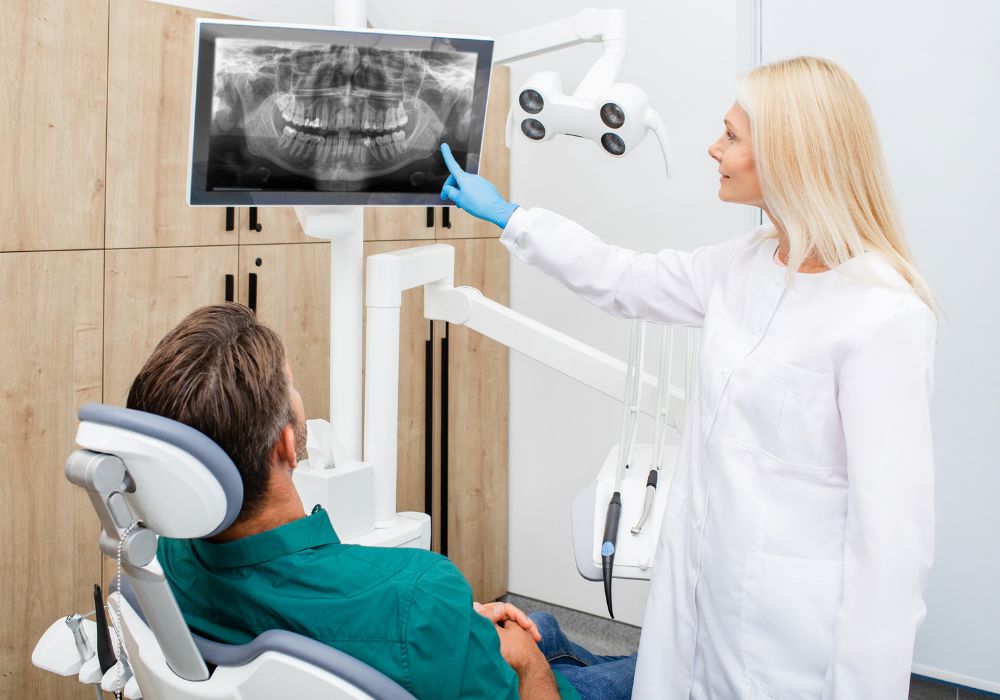
If you are experiencing discomfort or pain in your mouth, it’s important to consult with a dental professional. They can help you determine the cause of your symptoms and recommend the appropriate treatment.
If you are considering having your wisdom teeth removed, it’s important to discuss the procedure with your dentist or oral surgeon. They can evaluate your specific situation and determine if removing your wisdom teeth is the best course of action.
During your consultation, your dental professional may perform a physical exam, take x-rays, and ask you questions about your symptoms. They may also discuss the risks and benefits of the procedure, as well as any potential complications.
It’s important to be honest with your dental professional about your medical history, including any medications you are taking and any health conditions you have. This information can help them determine if you are a good candidate for the procedure and if any additional precautions need to be taken.
Overall, consulting with a dental professional can help you make an informed decision about whether or not to have your wisdom teeth removed and can ensure that you receive the appropriate care for your dental health needs.
Frequently Asked Questions
Will removing wisdom teeth cause your other teeth to shift?
It is possible that removing your wisdom teeth can cause your other teeth to shift. Wisdom teeth are the last set of molars to come in, and their removal can create extra space in your mouth. This extra space can cause your other teeth to shift, especially if you have had orthodontic treatment in the past.
Is it common for teeth to move after wisdom teeth removal?
It is not uncommon for teeth to shift after wisdom teeth removal. However, the extent of the shifting can vary from person to person. Some people may experience only minor shifting, while others may notice more significant changes in their bite.
How can you prevent your teeth from shifting after wisdom teeth removal?
To prevent your teeth from shifting after wisdom teeth removal, it is important to follow your dentist’s instructions carefully. This may include wearing a retainer or other orthodontic appliance to help keep your teeth in place. You should also continue to practice good oral hygiene to keep your teeth healthy and strong.
What are the risks of teeth shifting after wisdom teeth removal?
The risks of teeth shifting after wisdom teeth removal include changes in your bite, which can lead to problems with chewing and speaking. In some cases, teeth shifting can also cause jaw pain, headaches, and other discomfort.
How long does it take for teeth to shift after wisdom teeth removal?
The amount of time it takes for teeth to shift after wisdom teeth removal can vary depending on a number of factors, including your age, the condition of your teeth, and the type of orthodontic treatment you have had in the past. In general, however, you can expect to notice some changes in your bite within a few weeks to a few months after your wisdom teeth are removed.
What should you do if you notice your teeth shifting after wisdom teeth removal?
If you notice your teeth shifting after wisdom teeth removal, it is important to contact your dentist right away. Your dentist can evaluate your bite and recommend the best course of action to prevent further shifting and restore your oral health.

